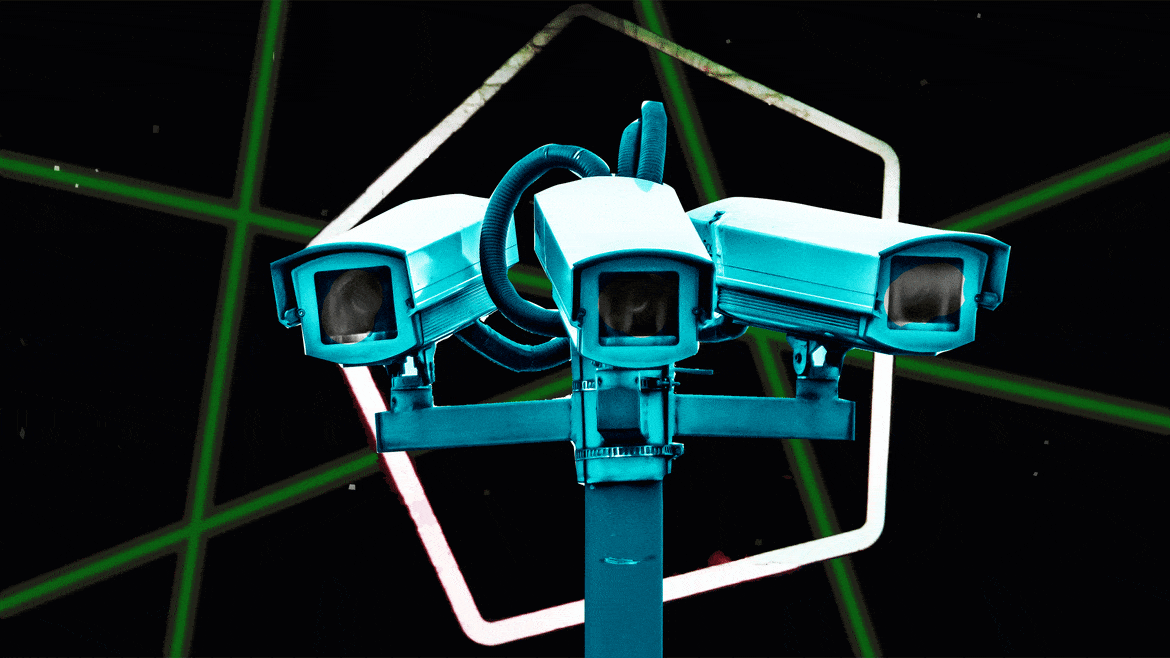Pentagon Officials Are Preparing for an All-Out Space War

The United States is under siege in space, and we better get ready for an all-out space war.
At least, that’s the alarming scenario that a host of Trump administration officials posited on Tuesday and Wednesday at a major space conference in Colorado Springs, where Pentagon officials warned of increasingly sophisticated Russian and Chinese weapons threatening America's hundreds of satellites and the GPS, phone calls, and internet-browsing they enable.
But the administration's escalating orbital war-cry has omitted at least one important fact: When it comes to military provocation in space, the United States isn't some innocent victim, beefing up strictly in self-defense.
“China and Russia have weaponized space,” acting defense secretary Patrick Shanahan, a former Boeing executive who is under investigation for favoring his ex-employer in government contracting, said. “We are not going to sit back and watch. We are going to act.”
Gen. David Goldfein, the U.S. Air Force's chief of staff, chimed in with a sports metaphor. “It's not enough to stand in the ring and take punches. You have to have the will and capability to punch back.”
The Pentagon might even start activating new space weapons preemptively as a shock-and-awe-style show of force, Air Force secretary Heather Wilson said. “There may come a point where we demonstrate some of our capabilities so that our adversaries understand they cannot deny us the use of space without consequence.“
But Russian and Chinese officials could say the same things about U.S. behavior in space that American officials say about Russian and Chinese behavior in space. It's not hard to imagine officials in Moscow and Beijing calling for more weapons and dramatic demonstrations of orbital might, all in a bid to match America's own space belligerence.
By far the world's leading space power, the U.S. military possesses all the same orbital weapons that China and Russia have deployed. In some key cases, the Americans actually deployed the space weapons first.
Administration officials repeatedly referred to a Chinese laser installation that could, in theory, blind the sensors on American satellites. That laser site in western China has “undergone significant upgrade” since it first appeared in 2009, said Fred Kennedy, director of the Pentagon's Space Development Agency.
But the United States tested its own satellite-blinding laser as far back as October 1997.
“Results of the test are classified, but the [Department of Defense] did report that the system tracked and illuminated the satellite, and the lower-power laser either temporarily dazzled or damaged the satellite’s sensor,” Laura Grego, a space expert with the Union of Concerned Scientists in Massachusetts, explained in a 2012 paper.
The Pentagon considered the 1997 test to be “defensive,” but that didn't stop Russian officials from lodging a formal protest, Grego pointed out.
U.S. officials in Colorado also decried other countries' tests of anti-satellite rockets. On March 27, India lobbed a rocket 500 miles into space and struck a target satellite, smashing the satellite into hundreds of pieces. It could take up to 18 months for the debris to re-enter the atmosphere and burn up.
In the meantime, some chunks pose a danger to the International Space Station, NASA claimed.
Wilson, the Air Force secretary, cited the Indian test as evidence space is getting more dangerous. China conducted a similar but bigger-scale anti-satellite test in 2007, hitting a target with a rocket and scattering thousands of pieces of debris.
But the United States fired a rocket at a target satellite way back in 1982, and repeated the feat in 2008. The U.S. test in 2008 scattered just as much debris as the Indian test did 11 years later, according to Brian Weeden, a space expert with the Secure World Foundation in Colorado.
In addition to lasers and rockets, there's a third type of anti-satellite weapon: a small, maneuverable “inspection” satellite, whose official mission is to check on a country's own spacecraft, which could easily double as a weapon by tampering with an enemy's spacecraft.
Russian and Chinese inspection satellites pose an “on-orbit” threat to American spacecraft, Air Force general John Hyten, the head of U.S. nuclear forces, said at the Colorado conference. China in 2016 launched its own SJ-17 inspection satellite.
The nimble spacecraft has been tracked maneuvering around other Chinese satellites. “They're practicing here, they're exercising,“ Todd Harrison, a space expert with the Center for Strategic and International Studies in Washington, D.C., said at the conference. “What could they be preparing for?“
Russia in 2014, 2015 and 2017 deployed no fewer than three separate Kosmos inspection sats. These craft have acted even more aggressively than SJ-17 has done. Russian inspection sats have spent the past few years “nuzzling up to other people's satellites,” Harrison explained.
One Russian sat got so close to a French-Italian military satellite that Paris lodged an official complaint, Harrison said.
Left unmentioned by most attendees at the Colorado conference, and certainly by administration officials, is that the United States operates several inspection satellites. And as part of the Air Force's Geosynchronous Space Situational Awareness Program, two inspection sats since 2014 have performed multiple close passes on other satellites. “This behavior is similar to several international ... missions,” Weeden wrote in an April report.
If there's an arms race in space—and more and more experts agree there is—America started a lot of it and has sustained it by deploying space weaponry at the same time as, or even years before, potential enemies have deployed their own orbital weapons.
But that nuance is missing in the Trump administration's increasingly heated rhetoric about the possibility of orbital conflict.
That might not be an accident. It's possible the President and top officials actually want more weapons, more tension, and more danger in space.
“The administration’s real emphasis,” Joan Johnson-Freese, a space expert, author and educator told The Daily Beast, “is a space arms race.”

